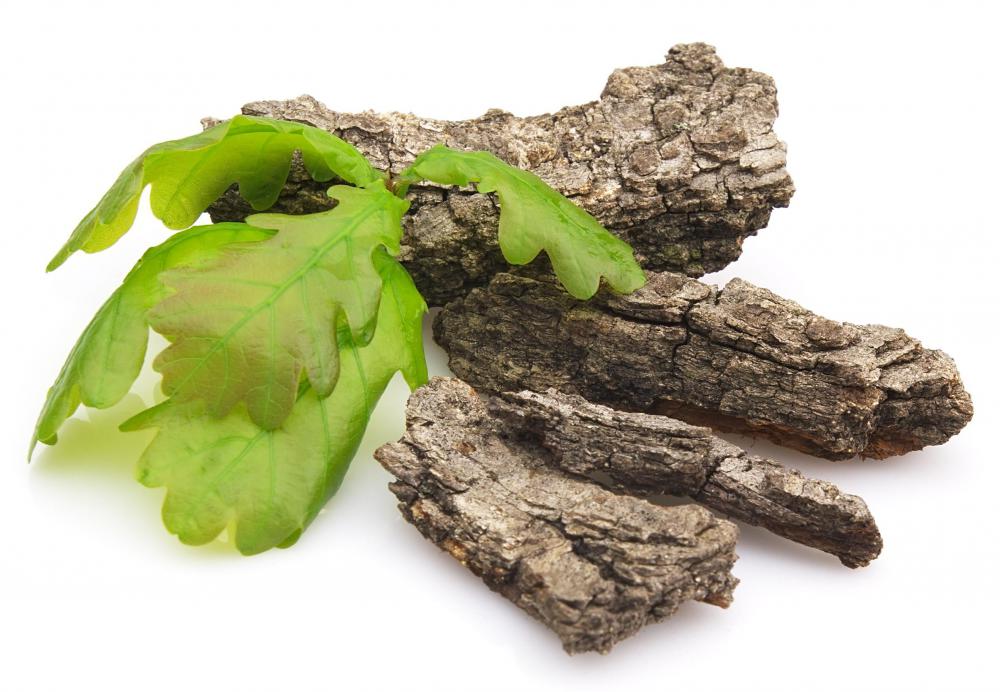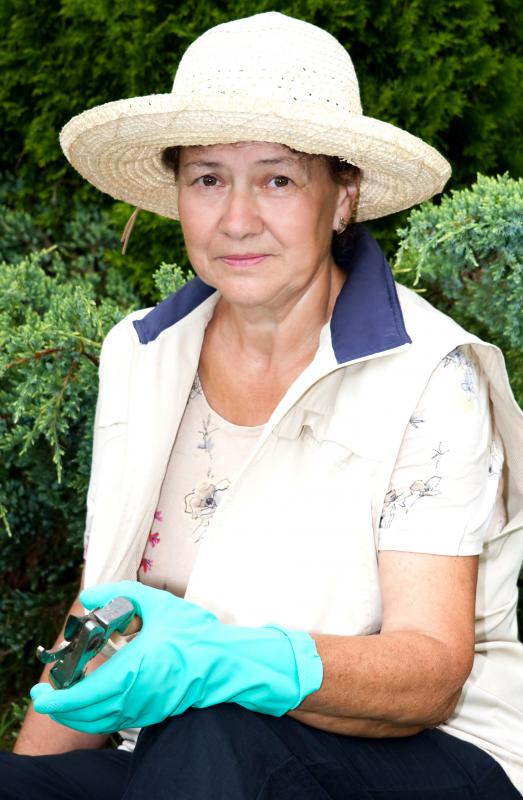At HomeQuestionsAnswered, we're committed to delivering accurate, trustworthy information. Our expert-authored content is rigorously fact-checked and sourced from credible authorities. Discover how we uphold the highest standards in providing you with reliable knowledge.
What is a Compost Activator?
Compost activator, also known as compost inoculate, is a mixture of micro-organisms and nutrients that are added to a compost pile to speed up the breakdown of fruit and vegetable scraps. Compost piles take a while to decompose naturally, which can draw fruit flies and odors to your pile. There are also herbal and all-natural activators.
An activator may be needed for several reasons. The primary reason is usually that the compost heat may have too many high-carbon materials, such as dried leaves, and not enough nitrogen-containing materials, which are the greens. It may also be needed if the weather is below 50 degrees Fahrenheit (12 degrees Celsius), as heat is the primary activator in the composting process. The final reason may be that the person composting is a beginner and is insecure about the time necessary to compost.

Herbal activators are the most widely used, as they are quick and efficient. Herbal activators work with radiation to compost the pile into a sweet smelling heap, due to the ingredient mixture. Quick Return Organic Compost Activator is a widely used pre-made herbal accelerator.
An herbal compost activator usually contains a mixture of the following seven ingredients: yarrow, chamomile, dandelion, oak bark, valerian, nettle and honey. These are in powder form, and are dropped into the bottle twenty-four hours before use. Holes are dug into the heap and the activator is poured in so that it soaks to the bottom. The holes are then filled back up with dirt. Depending upon what time of the year it is, the pile is evenly composted in four to twelve weeks.

All natural compost activators are added to the compost pile to kick-start the process. They provide a nitrogen-protein source that feeds the community of micro-organisms. Some common compost activated materials are comfrey leaves, young weeds, well-rotted chicken manure and grass clippings. These are usually added in layers on top of the recently added fruit and vegetable scraps.

Other natural compost activators that aren't as widely available include meals of alfalfa, blood, bone, cottonseed, fish, hoof, and horn. Natural activators don't just work to speed up the composting process. They also add nutrients, such as potassium, to the soil that will benefit flowers, vegetables and fruit trees.
The most natural form of compost activator is human urine. It is very high in nitrogen and is crammed full of minerals and vitamins. Although many people are concerned about urinating in their yard, it is a very sterile liquid and it is being put to good use.
AS FEATURED ON:
AS FEATURED ON:













Discussion Comments
I wonder if I could make my own herbal activator. I grow chamomile, I have an oak tree, and I have hundreds of dandelions growing in my yard.
It would be so easy to just take clippings from these and pile them on top of my compost pile. I imagine that it probably wouldn’t work as fast as the powder form, because these elements would have to decompose, as well.
Does anyone know if this would work at all? I hate to go to all the trouble of doing it if it won’t yield results.
After reading this article, I can see that I knew next to nothing about making a compost pile, let alone activating it. I did not even know that you needed both green and brown ingredients.
All I had been doing was piling up dead flowers, plants, and leaves into a heap and letting it sit in the sun. Some of the stuff on the bottom of the pile decomposed a bit over the winter, but the majority of it I just used as mulch around my seedlings in spring.
I will definitely start using green material in my compost. Also, I think I will try that herbal activator mentioned here. I’ve got a lot to learn, but this article has given me a good start.
@shell4life - I think that as long as the urine doesn’t directly come in contact with the flowers and leaves, it should be all right. Keep in mind that your chrysanthemum bushes were being directly assaulted with urine, rather than having it soak into the ground below.
I think that since the urine will be added on top of the compost, your plants won’t get enough of it in their root system to harm them, anyway. Think of it this way - there is a big difference between pouring acid directly onto your skin and absorbing some internally as you eat citrus fruit.
I find it strange that human urine can be used to activate compost. I’ve never seen what the human version can do to plants, but I know that animal urine can be detrimental to some kinds.
My dogs were urinating on my chrysanthemum bushes, and this was causing them to slowly die. The only way to save them was to move them to my parents’ yard, where they flourished.
I just wonder if human urine would be bad for chrysanthemums, since dog urine kills them. Does anyone know if human urine used in compost material would affect them negatively?
Post your comments